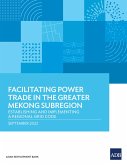Solar energy is emerging as the world's largest growing source of power. In recent years, its rollout and growth have produced effects far beyond electricity generation, including a series of cognate challenges and conflicts in diverse geographies of energy transition.
Geographies of Solar Energy Transitions focuses on how solar energy governance (both state-based regulations and more market-driven modes of governance) is evolving to address these conflicts in diverse empirical settings. Chapters and case studies by leading energy scholars explore various issues such as formulating new place-specific solar energy visions and strategies, financing specific deployment scales, expanding or replacing electricity infrastructure, accessing land, resolving conflicts surrounding competing land uses, incorporating charging technologies for transport and storage, adopting flexible energy production/consumption relationships, displacing fossil fuel energy production with renewables, enabling new energy ownership models, and addressing the many environmental and social injustices across the value chain of solar expansion including upstream extractivism and downstream waste.
Scholarship typically frames these challenges as tangential to the governance of solar energy transitions. By placing them front and centre, the book draws necessary attention to the many wider changes in society that are continuously developing due to the worldwide adoption of solar power.
Geographies of Solar Energy Transitions focuses on how solar energy governance (both state-based regulations and more market-driven modes of governance) is evolving to address these conflicts in diverse empirical settings. Chapters and case studies by leading energy scholars explore various issues such as formulating new place-specific solar energy visions and strategies, financing specific deployment scales, expanding or replacing electricity infrastructure, accessing land, resolving conflicts surrounding competing land uses, incorporating charging technologies for transport and storage, adopting flexible energy production/consumption relationships, displacing fossil fuel energy production with renewables, enabling new energy ownership models, and addressing the many environmental and social injustices across the value chain of solar expansion including upstream extractivism and downstream waste.
Scholarship typically frames these challenges as tangential to the governance of solar energy transitions. By placing them front and centre, the book draws necessary attention to the many wider changes in society that are continuously developing due to the worldwide adoption of solar power.
Dieser Download kann aus rechtlichen Gründen nur mit Rechnungsadresse in A, D ausgeliefert werden.









